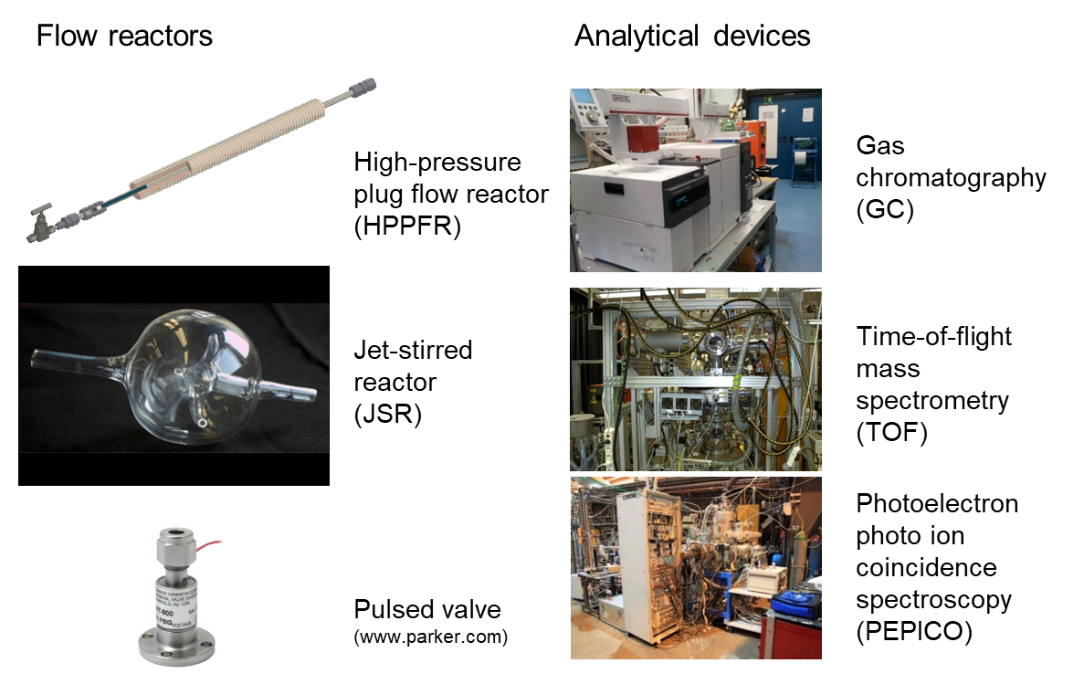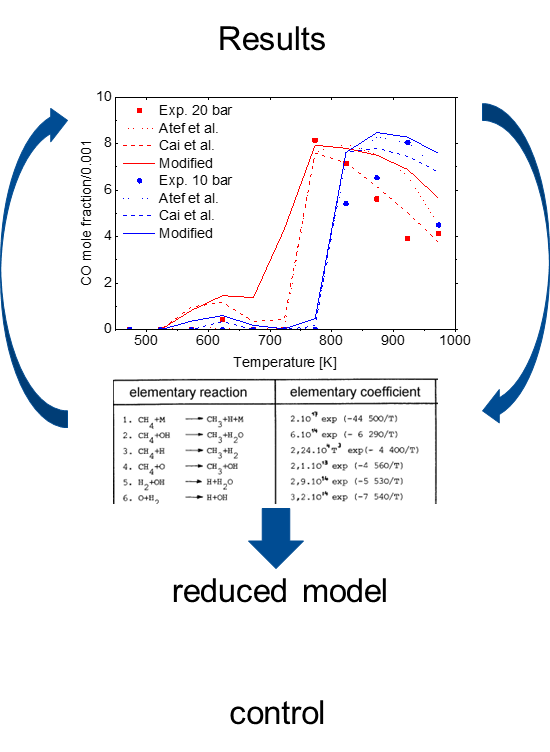DFG Research Unit 2401
„Optimization-Based Multiscale Control of Low-Temperature Combustion Engines“ Project „Characterization of the low temperature chemistry of large hydrocarbons for model development in motor control“
Low-temperature combustion (NTV) can increase the efficiency of engines while reducing their emissions. In NTV a fuel-air mixture that is as homogeneous as possible is produced and burned after self-ignition. The FOR2401 develops approaches for the control of NTV processes that allow engines to be operated transiently and stably in a wide characteristic field.
To investigate open questions related to the kinetics of the ignition procedure, the conversion of fuel-air mixtures in a flow reactor and a well-stirred reactor is analyzed by mass spectrometry and gas chromatography. By varying the pressure, the reaction temperature, the residence time and the equivalence ratio, data sets are obtained from which conclusions on the reaction pathways can be drawn. In addition, the relationship between ion formation during combustion and the thermodynamic state of the combusted gas mixture is investigated to determine how the ion current signal, which is comparatively easy to measure in the engine, can be used in combination with the cylinder pressure as a control parameter. For this purpose, low-pressure flames in which the formation of ions is relatively well known are examined first. The investigations are then extended to the NTV parameter range in the high-pressure reactor in order to find formation reactions at these temperatures.
| Contact: | Prof. Dr. Tina Kasper Chair of Technical Thermodynamics, Paderborn University |


